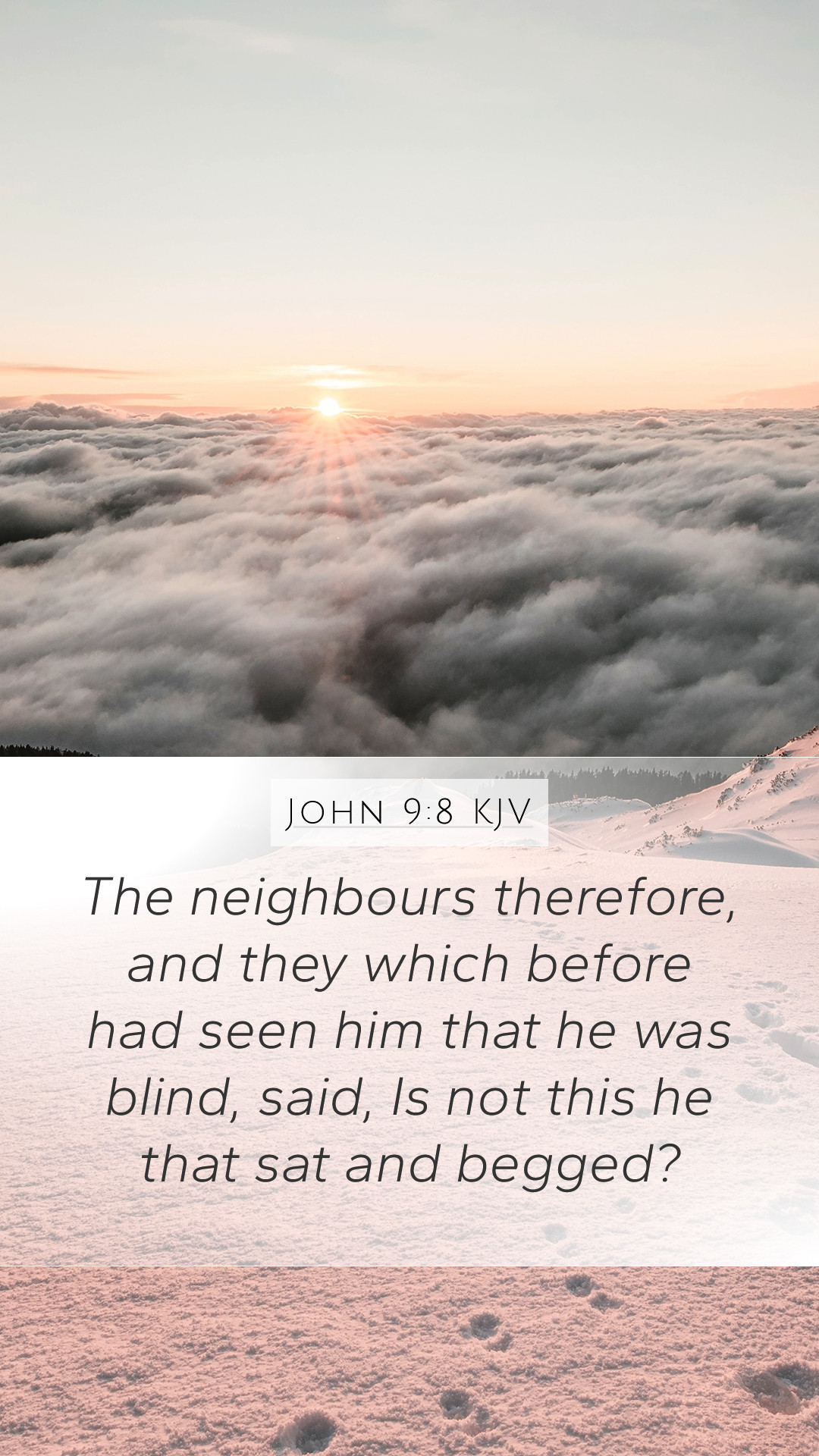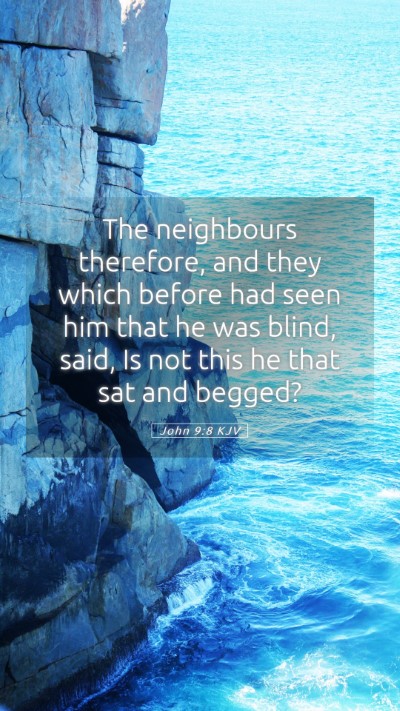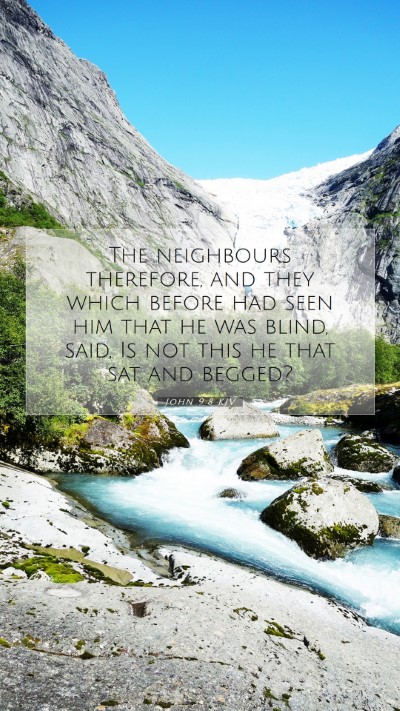Understanding John 9:8
Verse: John 9:8 - "The neighbors therefore, and they which before had seen him that he was blind, said, Is not this he that sat and begged?"
Bible Verse Meanings and Interpretations
The verse resides within the context of a miraculous healing performed by Jesus. The healing of the blind man signifies both physical restoration and spiritual enlightenment. This passage emphasizes themes of transformation and revelation.
Insights from Public Domain Commentaries
-
Matthew Henry:
Henry notes that the crowd’s astonishment at the healed man indicates how drastic the change was in his circumstances. The inquiry about his identity reveals their skepticism and highlights the miraculous nature of Jesus’ work in our lives.
-
Albert Barnes:
Barnes acknowledges that the healed man’s former blindness becomes a point of focus in the community. Their questioning reflects their astonishment and their struggle to reconcile the man they once knew with the new reality of his healing.
-
Adam Clarke:
Clarke interprets this verse as a commentary on human perception and belief. The neighbors’ doubt exemplifies the human tendency to resist acknowledging the miraculous. This serves as a lesson on faith and understanding, encouraging readers to recognize God’s work in their lives.
Understanding the Historical and Contextual Background
To fully grasp the significance of John 9:8, it is vital to consider the timing and setting of the miracle. This event took place in Jerusalem during a time of religious and social tension, where belief in Jesus was often met with skepticism.
The former blind man's healing poses questions about authority and belief, drawing parallels with Old Testament prophecies about the coming Messiah who would restore sight to the blind (see Isaiah 35:5).
Application of the Verse to Daily Life
John 9:8 serves as a reminder to the believers of the transformational power of Christ. Just as the blind man’s life was changed, believers are called to embrace the changes that Jesus brings into their lives. This passage prompts reflection on how one discusses their faith and the changes it has wrought in them.
Furthermore, this verse encourages individuals to remain open to the divine interventions in their lives and to be witnesses to the miraculous work of God.
Related Scripture References
- Isaiah 35:5: "Then the eyes of the blind shall be opened, and the ears of the deaf unstopped."
- John 9:7: "And said unto him, Go, wash in the pool of Siloam, (which is by interpretation, Sent.) He went his way therefore, and washed, and came seeing."
- Luke 4:18: "The Spirit of the Lord is upon me, because he hath anointed me to preach the gospel to the poor; he hath sent me to heal the brokenhearted, to preach deliverance to the captives, and recovering of sight to the blind."
Conclusion
In summary, John 9:8 stands as a powerful testament to the transformative work of Jesus. Through the observations of the blind man's neighbors, readers are called to consider their own perceptions of God's workings in their life. As one delves deeper into the meanings of Bible verses, particularly those that reveal the healing power of Christ, a greater appreciation for His teachings and miracles develops.
By engaging with public domain commentaries and understanding the historical context, believers can enrich their personal Bible study and gain invaluable insights into the significance of Jesus’ actions during His earthly ministry.


